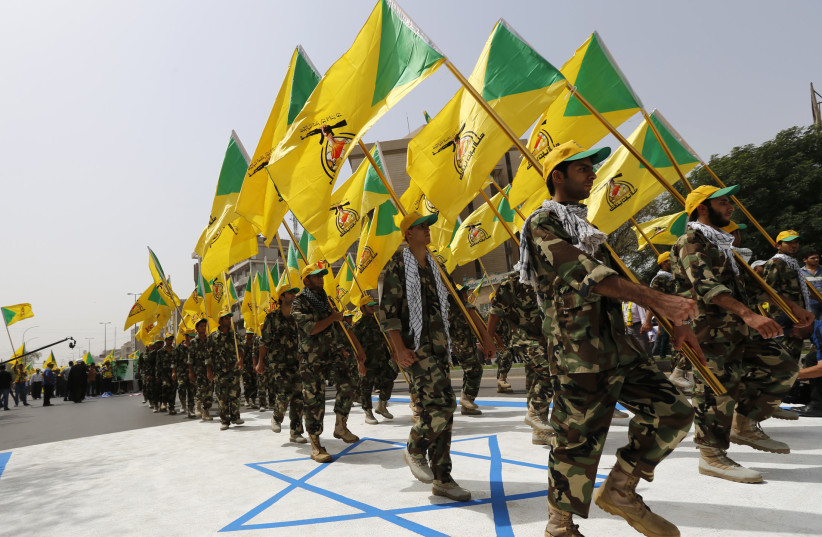In recent days, tensions have been rife in the North due to Lebanese claims to parts of Ghajar village, as well as a Hezbollah tent placed in the disputed area of Mount Dov. These tensions led to discussions between Prime Minister Benjamin Netanyahu and Amos Hochstein, the US envoy for global infrastructure and energy security.
From the point of view of Iran, its proxies, and Hezbollah, this may present a window of opportunity to turn up the heat on Israel. This can be seen as an attempt to institutionalize the methods behind the maritime agreement last year, whereby Hezbollah and Lebanon’s government work together to create new claims against Israel and then “compromise” by receiving concessions from Israel, i.e., if Israel doesn’t give something away, Hezbollah threatens conflict.
But it is not always clear what Hezbollah is thinking. On the one hand, it wants to legitimize and institutionalize its actions. It doesn’t want to just be a shadowy terrorist army, but rather to openly establish “facts” on the ground – such as tents – and then claim victory for Lebanon’s diplomacy. It remains a terrorist force, and it openly boasts about its armaments.
An article on Beirut-based, pro-Iranian news site Al Mayadeen on Wednesday provides a bit of insight into some of Hezbollah’s mindset. The article analyzes the military capabilities of Israel and Hezbollah, going back 20 years.
For Hezbollah, the anniversary of the “July war” in 2006 is important because it asserts that this is evidence it was able to withstand Israel’s blows. The article paints a picture of a Hezbollah that has vastly expanded its arsenal since then.
“Today, Israel seems distracted between an internal battle that threatens to split the army,” the article concludes, referring to threats by IDF reservists to withdraw from service if the judicial overhaul is approved.

Israel's defense vs. offense
This means our adversaries are closely watching Israel’s social turmoil. The article argues that Hezbollah accumulated strength and experience over the last decades, while Israel “has not succeeded in any large-scale military operation for more than 40 years,” [and] now there is an “opportunity” to challenge Israel’s “Iron wall.”
The article goes on to note that while Israel developed Iron Dome and a multilayered air-defense system that can confront rockets and missiles, Hezbollah can threaten Israel in the air and at sea in equal measure.
This could be hinting at Hezbollah’s arsenal, which includes rockets and drones that can be used against ships, and also air defenses against aircraft. The article asserts that Israel has failed in its threats to use a “Dahiya doctrine” to harm civilian infrastructure. It also says Israel spent so much time focusing on defensive capabilities, it neglected offensive strategy.
The article acknowledges that Israel tried to make its offensive strategy more technology-driven, but “in reality, the fighter who is burdened with high technologies, and who has been trained to fight under special circumstances, will become dependent on these technologies, as he will increase his dependence on them with time, which means that it is difficult to enter the war without them, or to deal quickly and effectively with any problem that may arise in his equipment.”
As such, the assessment in Lebanon among Hezbollah may be that 20-plus years of changes are bringing diminishing returns to Israel: Too much technology means that soldiers may rely on things like drones to scan border areas and not know the area as well from the field; and too much concern for defenses means that the home front doesn’t want to see any casualties and isn’t ready for a long conflict.
Additionally, internal divisions, in the view of the pro-Iran axis, weaken Israel.
These assessments may be wrong, but if Israel’s enemies believe these elements are coming together, they may conclude that the time is coming to confront Israel. On the other hand, they may see this as an opportunity for some breathing space to emerge from the shadows and perform antics.
